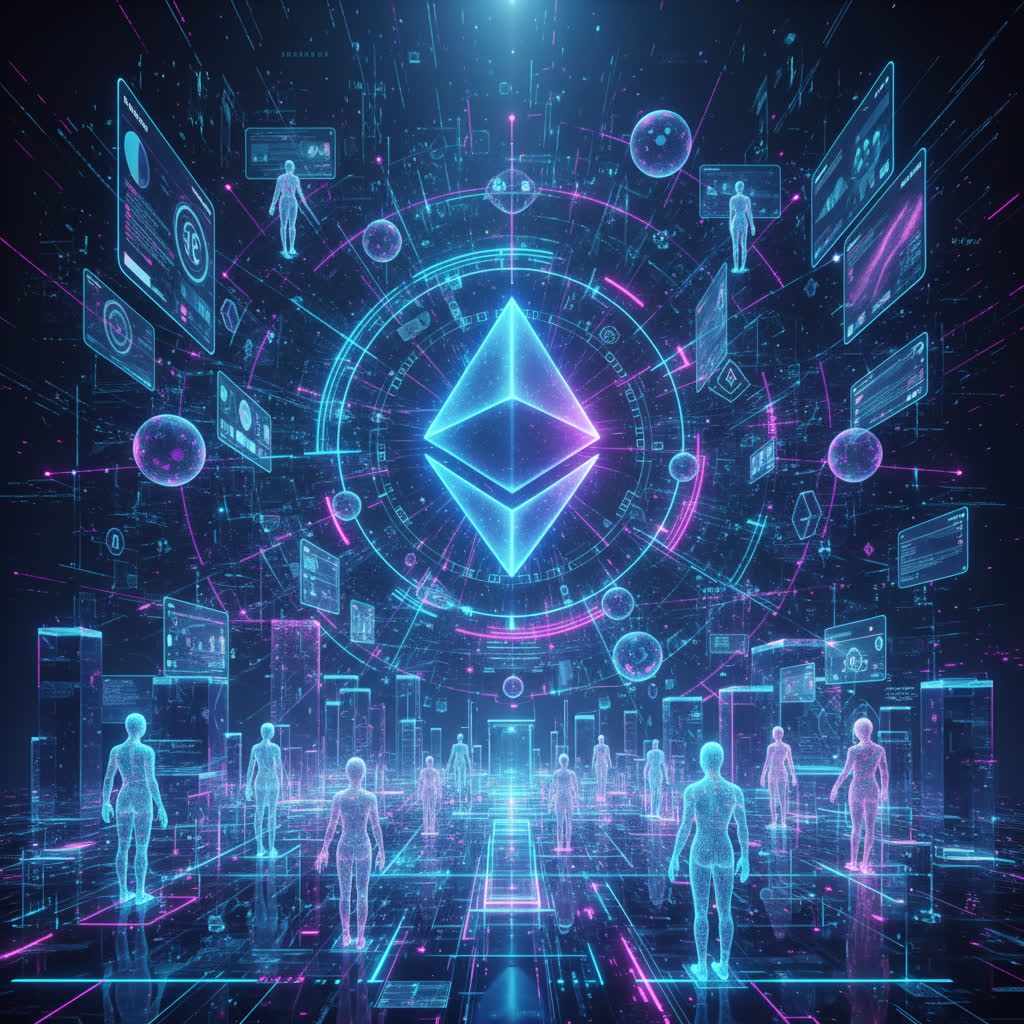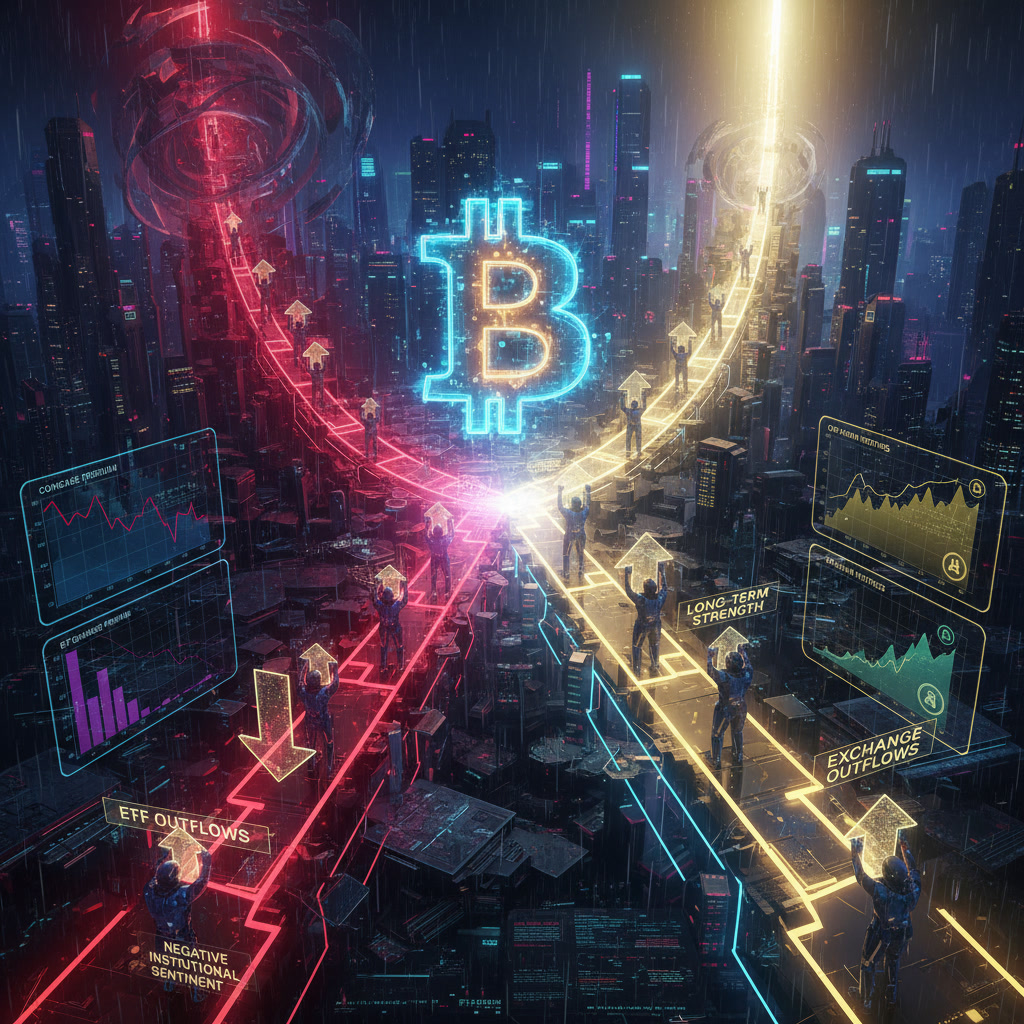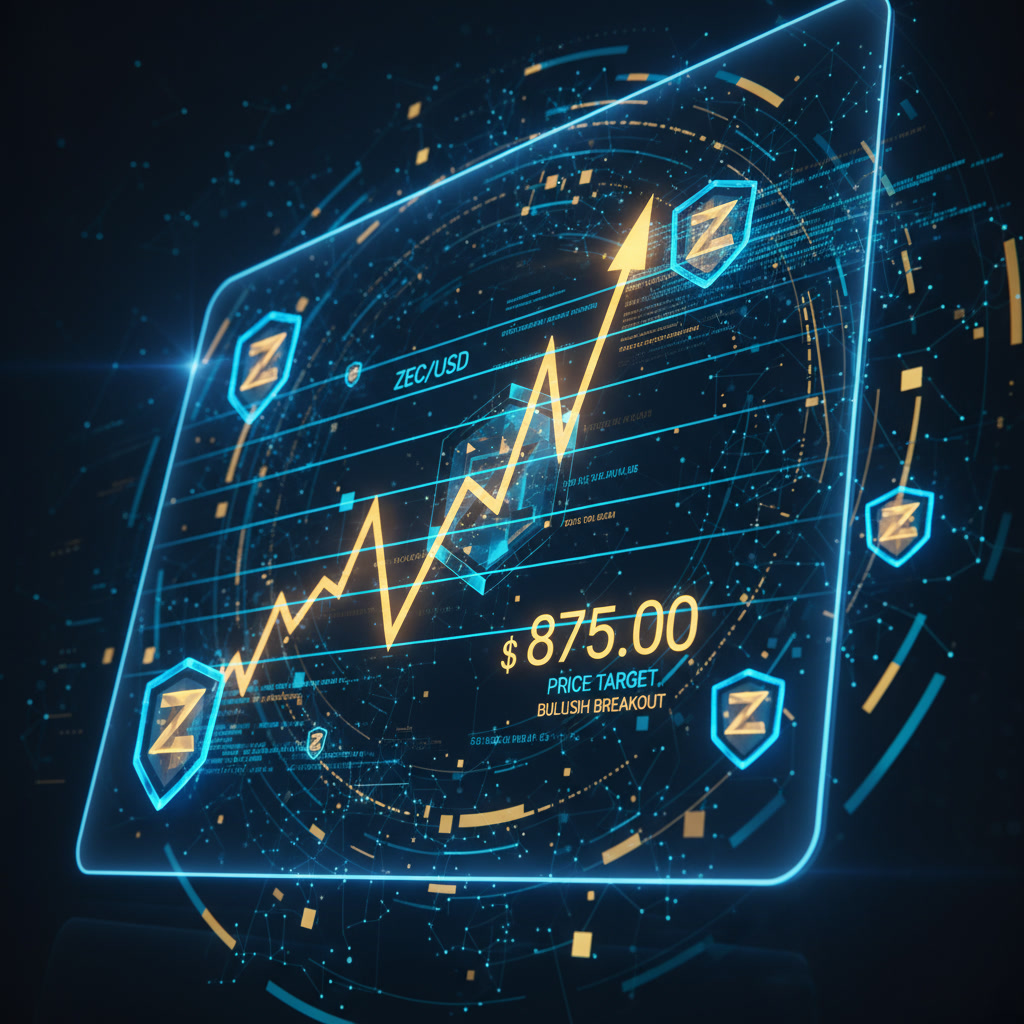In the near future, we may see AI agents emerge not just as isolated services but as autonomous, tokenized entities operating within a decentralized ecosystem. At the center of this vision lies Ethereum and a newly proposed standard: ERC‑8004. This technical specification, introduced originally in the summer of 2025, is now undergoing peer review and its smart contracts have already been deployed on Ethereum’s test networks.
What is ERC-8004 and why it matters
ERC-8004 is designed to enable developers and users to mint AI agents similarly to how NFTs are created (think of the widely-used ERC‑721 standard), while also enabling those agents to maintain reputational data and be discovered in a marketplace-style environment.
Some of the key features and implications:
-
AI agents can be minted and managed on-chain (or at least have tokenised references), enabling unique ownership or access rights.
-
Reputation scores or metadata can be tied to each agent, which helps users or other agents assess trustworthiness.
-
A new open payments protocol named x402 (developed by Coinbase) is integrated, allowing these agents to monetize usage or services automatically.
-
The Ethereum chain therefore becomes more than just a settlement layer: it evolves into a platform or “app-store” for AI agents, where agents can be discovered, used, paid, and rated—all in a decentralized environment.
Why Ethereum is suited for this role
Several reasons why Ethereum (rather than a walled-garden platform) is in a favorable position to become this open marketplace for AI agents:
-
Decentralized infrastructure – With no single central intermediary, the system aligns with open-agent economies and avoids closed ecosystems. As one of the creators of ERC 8004, Marco de Rossi, put it: “What matters is an infrastructure that’s neutral, transparent, and understandable by everyone.”
-
Smart contract flexibility – The standards of minting, metadata, reputation, and payments are all conveniently handled via smart contracts, making Ethereum a natural fit.
-
Ecosystem and developer base – Ethereum already has a large pool of developers, wallets, marketplaces, and standards; adding AI-agent support can leverage this existing infrastructure.
-
Avoiding fragmentation – If separate platforms build isolated “app-stores” for AI agents, users may be forced to juggle many systems. The hope is for one interoperable marketplace—ideally built on blockchain—rather than numerous closed ones.
Potential Use-Cases & Scenarios
Here are several applications where this model of AI agents on Ethereum could manifest:
-
Automated task agents: An AI agent might be minted and deployed to run specific repetitive tasks (e.g., data-scraping, content summarization), charged via x402 payments per usage.
-
Agent-to-agent collaboration: One agent might “hire” another agent to perform a sub-task, paying automatically in cryptocurrency, creating an agent-to-agent economy. The article mentions analogies to “A2A” (agent-to-agent) systems.
-
Reputation-based marketplaces: Users pick AI agents based not just on their descriptions, but on on-chain reputational data stored with ERC 8004 metadata. Agents with higher trust scores get better visibility.
-
Personalized AI apps & services: Users or enterprises could deploy custom agents for specialized tasks, register them as tokens, and offer access to others via the marketplace built on Ethereum.
Challenges & Considerations
While the vision is compelling, there are several hurdles to overcome before Ethereum can truly become the “ultimate app store” for AI agents:
-
On-chain compute constraints: Running heavy AI models directly on-chain remains infeasible due to cost and scalability. The design assumes off-chain hosting of the agent’s heavy lifting, with the token/metadata/payment layer on-chain. As de Rossi notes: “Operating AI on-chain is extremely complex and resource-intensive.”
-
User-friendly discovery interfaces: To attract mainstream users, the agent marketplace must have intuitive interfaces, discovery tools, visuals, and integrated payments. De Rossi disclosed that several groups are already building such platforms.
-
Visibility and fairness: The risk of having multiple isolated marketplaces or unfair visibility (where only the popular agents get surface) is real. Without careful design, fragmentation or monopolisation could occur.
-
Standards adoption and interoperability: For ERC 8004 to succeed, broad adoption by developers and wallets will be necessary. If different chains or platforms build their own incompatible standards, the network effect weakens.
-
Regulation and governance: With autonomous AI agents transacting, the regulatory horizon is complex. Questions around liability, bias, transparency, and rights of agents/users remain open.
The Bigger Picture: Crypto × AI Convergence
This development sits at the intersection of two major trends: the maturation of generative/agentive AI, and the evolution of blockchain-based infrastructure. In the words of one commenter:
“The real shift that will define Crypto × AI is Agentic Commerce. AI agents autonomously trading, negotiating, and executing with minimal human input.”
In essence, ERC 8004 could be one of the early building blocks enabling an economy where AI agents are first-class participants—discoverable, ownable, rated, paid. Ethereum thus morphs from just a smart-contract platform into a marketplace for autonomous intelligence.
Final Thoughts
The idea of Ethereum becoming the “app store” for AI agents via ERC-8004 is bold. It imagines a world where:
-
AI agents are minted as tokens,
-
Their reputation and usage histories are stored on-chain,
-
They transact and collaborate autonomously, and
-
The marketplace is decentralized and neutral.
If realized, this could open up new entrepreneurial opportunities: developers creating agents, users purchasing them, and agents interacting with each other—all without centralized gatekeepers. But it will demand careful infrastructure design, intuitive UX, and community alignment around standards.
As the landscape unfolds, we should keep an eye on how the ERC 8004 standard is adopted, what platforms emerge to let users discover and pay for agents, and how regulatory or technical constraints evolve. The convergence of crypto and AI might be one step closer to practical reality.
Ready to start your cryptocurrency journey?
If you’re interested in exploring the world of crypto trading, here are some trusted platforms where you can create an account:
- Binance – The world’s largest cryptocurrency exchange by volume.
- Bybit – A top choice for derivatives trading with an intuitive interface.
- OKX – A comprehensive platform featuring spot, futures, DeFi, and a powerful Web3 wallet.
- KuCoin – Known for its vast selection of altcoins and user-friendly mobile app.
These platforms offer innovative features and a secure environment for trading and learning about cryptocurrencies. Join today and start exploring the opportunities in this exciting space!

Join our crypto community for news, discussions, and market updates: CryptoBCC on Telegram.

Disclaimer: Always do your own research (DYOR) and ensure you understand the risks before making any financial decisions.




